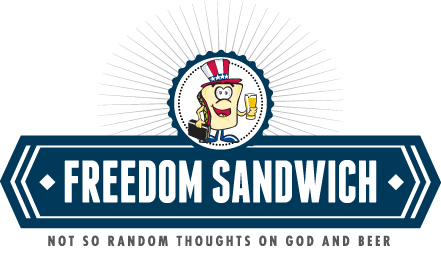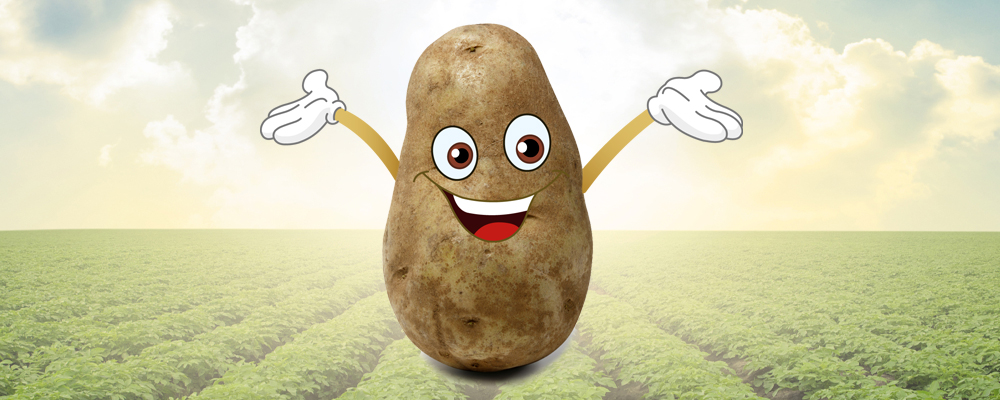You Say Potato…I Say Potato
It was pointed out to me that about 85-90% of my Facebook posts are about food. Now it’s creeping into my blog posts as well. It’s no wonder that I’m overweight.
Recently, I posted this little gem:
For lunch today I had banana pudding. I just thought you should know.
Pithy.
Actually, I thought it was quite witty. I was making fun of people who post to Facebook every inane detail of their life, while simultaneously posting an inane detail about my own life.
My mom should be proud.
I got some pretty good responses too (who knew posting about banana pudding would be so popular?) such as:
You are my hero!
I’m eating the same thing.
“Oink, Oink….LOL!”
You see, I would have been offended, but they wrote “LOL” so I knew they were joking. They were laughing out loud while they wrote it. Plus, eating banana pudding as your entire lunch pretty much leaves you open to any jokes people can think of.
I responded to my friend “…ouch! :-)”
The use of the smiley face emoticon is always a good sign that a person is joking. I mean, if you write “I hate your guts! :-)” or “The coffee at McDonald’s tastes great! :-)” and aren’t being facetious, we should really have a talk.
Unfortunately, my friend became worried that she had offended me and it started a chain of messages back and forth that degenerated into her being concerned about my emotional well-being.
What we say has meaning and this meaning is often, despite our best intentions and proper use of emoticons, completely misunderstood.
I started a small business 3 years ago. When I’m not slaving away at this blog, I can usually be found slaving away in the world of graphic design. Over the past three years I have been successful beyond both my expectations and truly what I feel I deserve. There is very little explanation why a chronic procrastinator with no business training at all should be able to make a living running his own small business. So when people ask me about the state of my company, my typical response has been:
“I’m blessed.”
I couldn’t find a better explanation than that. It’s quite honestly how I’ve felt. Unfortunately, it doesn’t accurately describe my theological worldview. I don’t believe God makes customers want to hand over their money for my attempts at logo design anymore than I think he controls the traffic patterns when we’re running late, the outcome of our favorite football team’s game, which pop star wins a Grammy or any number of things we attribute to a higher power.
While I was trying (admirably I think) to express humility before my Creator, I believe I missed one very important fact.
If I’m blessed, are other people not? Or worse, are they cursed?
If I attribute the success of my business to God’s blessing, what about the people who have worked just as hard as me and have failed? Were they not blessed? If I’ve been blessed with good health, what about the people who are sick or in pain? Are they cursed?
What are we saying about the nature of ourselves and God when we say we are blessed? Are we saying that we are somehow more righteous and therefore deserving of His blessing? Or are we saying that God is some sort of schizophrenic arbiter of fate who randomly chooses to bestow blessing on one person at one time while choosing to completely ignore another person’s pleas at another?
If the good things that happen to me are blessings, are the bad things that happen events that God has chosen to ignore? Or does He cause the bad things as well?
That’s what people going though times of struggle hear when I talk about my “blessings.”
Do we really believe that God is sitting on a throne up in heaven interceding at times in our lives to make things smoother, better, faster, stronger, more peaceful, hopeful and financially lucrative? And at other times, to other people, he turns a deaf ear? Like a giant Soup Nazi, “No blessings for you!”
What we say and how we say it has meaning.
All this blessing talk is shaped not only by our understanding of who God is, but actually our definition of what it means to be blessed.
Fortunately for us, God helped us with that definition. It’s found in a little section of the Bible conveniently referred to as “the beatitudes.” …Beatitude is defined as “supreme blessedness.”
Jesus being surrounded by a crowd of people went up and sat down on a mountainside and began to teach. And (as was his want to do) he said some crazy, radical, counterintuitive stuff. Stuff like:
Blessed are the poor in spirit.
Blessed are those who morn.
Blessed are the meek.
Blessed are those who are persecuted.
Blessed are you when people insult you.
I don’t know about you, but that doesn’t sound like the kind of grammy winning-touchdown catching-business succeeding kind of blessings I was looking for.
Jesus has a whole different definition of blessing than we have doesn’t he? Jesus seems less concerned with outcomes and more concerned with how we get there.
Jesus knows that God, who created the world and gave His creation the ability to continue that creative work, is working every day, every minute, every second to bring healing, hope and peace. God is about the business of making things whole.
Business not working out? You’re blessed.
Stuck in traffic? You’re blessed.
Not the cool kid at school? You’re blessed.
Relationship not working out like you hoped? You’re blessed.
Health failing? You’re blessed.
For Jesus, a blessing is not something we receive. It’s who we are.
So, you say potato and I’ll say potato, but as for me I’m going to call the whole “blessed” thing off.
*****
While it’s important to be humble and it’s entirely appropriate to be thankful, I’m sorry God if my fumbling attempts at humility have missed the point that you are engaged and involved in our lives in ways we can’t possibly understand. I’m sorry if my language has caused people to hurt or to question your love. May I bring comfort to those who mourn, help to those who are persecuted, and peace to all. Amen.


Leave a Reply